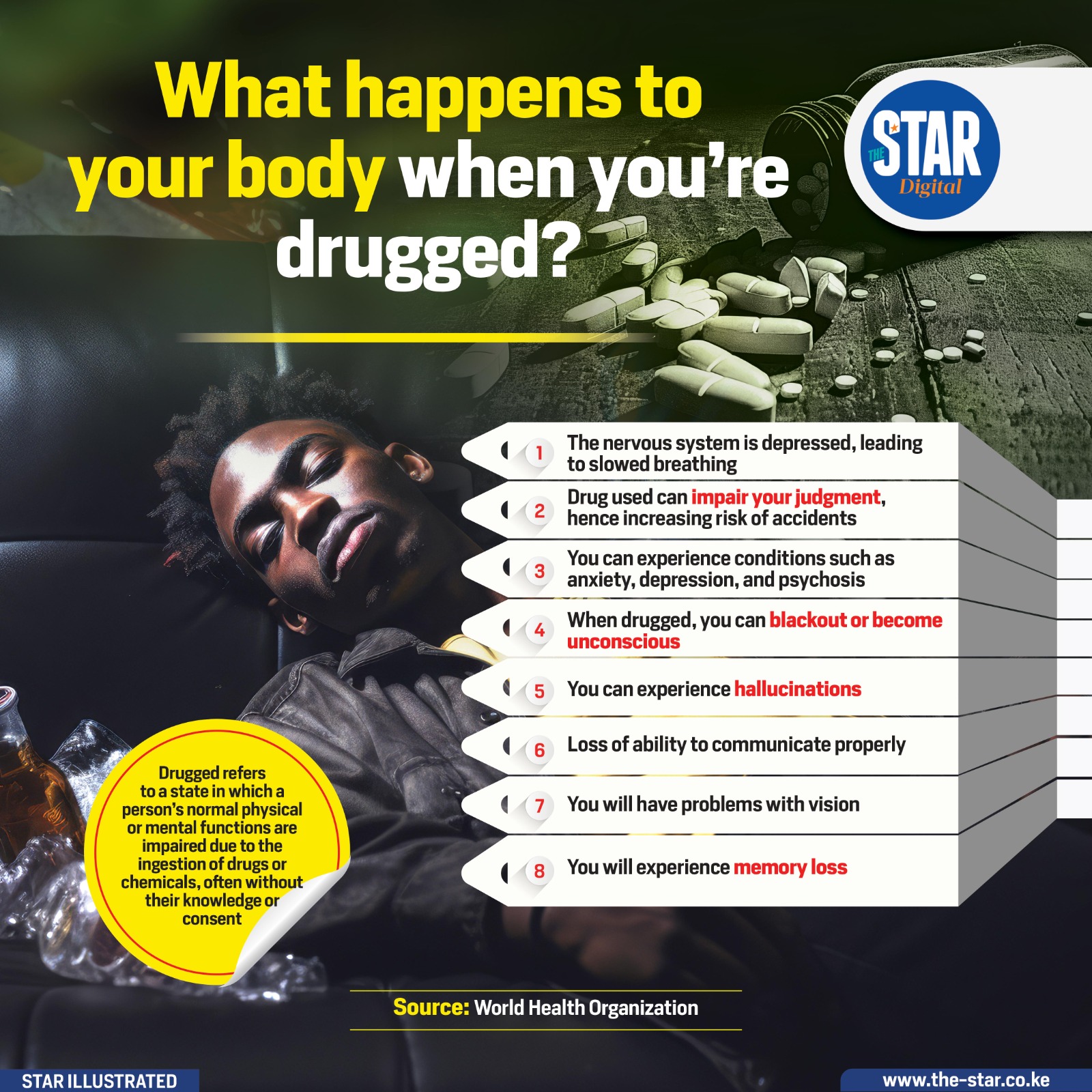

Being drugged can have serious and immediate effects on the body and mind, altering normal physical and mental functions.
According to the World Health Organization, drugs can depress the nervous system, slowing breathing and heart rate, which can be life-threatening in severe cases.
The substances can impair judgment, increasing the likelihood of accidents, and can also trigger mental health issues such as anxiety, depression, or psychosis.
Individuals who are drugged may experience memory loss, hallucinations, and problems with vision, making it difficult to navigate daily tasks.
Communication abilities can also be significantly affected, leaving the person unable to express themselves clearly or respond appropriately in critical situations.
In extreme instances, a person may black out or lose consciousness, placing them at higher risk of injury or exploitation.
Drugged states often occur without a person’s knowledge or consent, making awareness and prevention crucial.
Recognizing the signs, such as sudden disorientation, unusual behavior, or impaired motor skills, can help protect oneself and others. Understanding these risks emphasizes the importance of vigilance in social and public settings.











